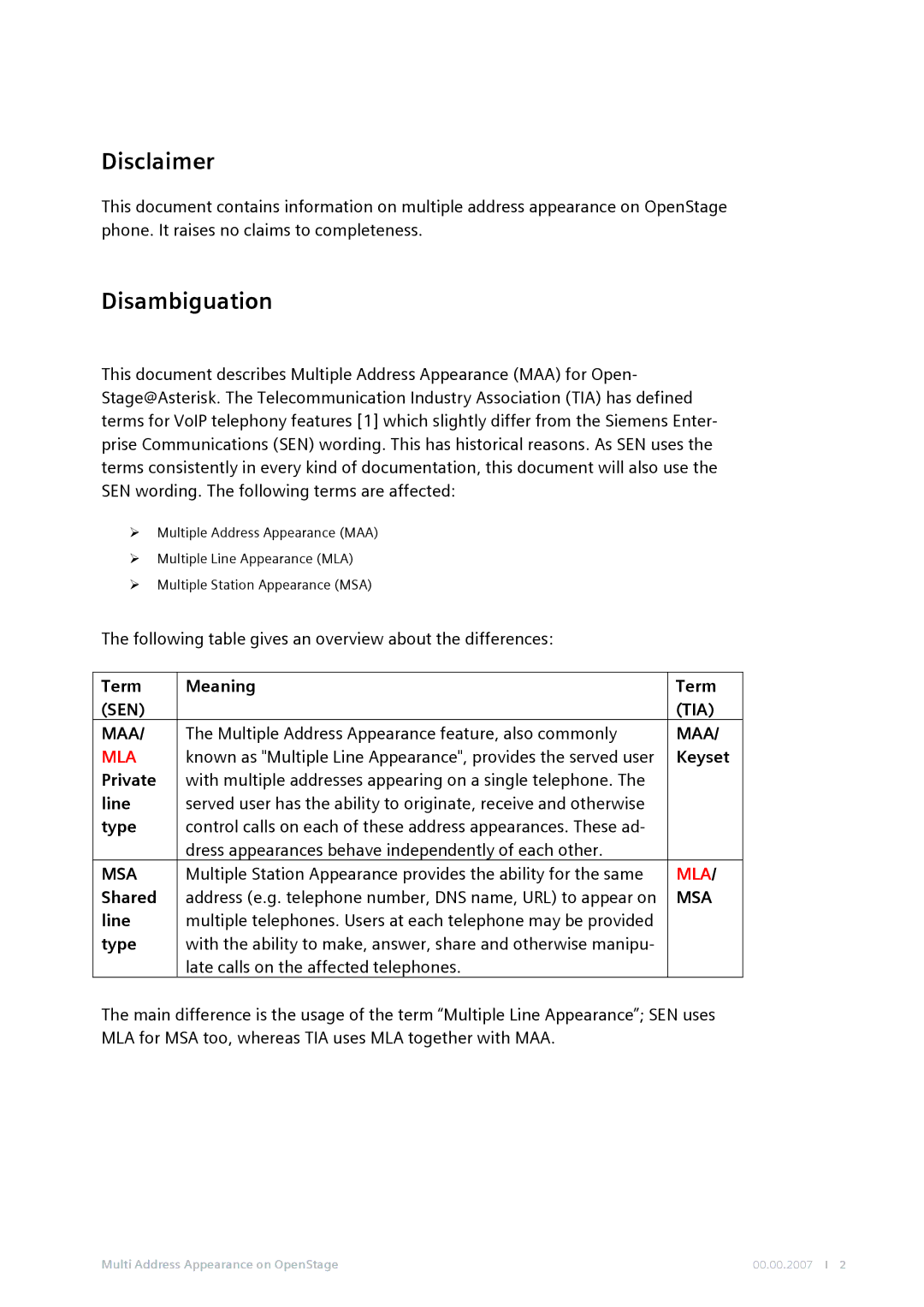Disclaimer
This document contains information on multiple address appearance on OpenStage phone. It raises no claims to completeness.
Disambiguation
This document describes Multiple Address Appearance (MAA) for Open- Stage@Asterisk. The Telecommunication Industry Association (TIA) has defined terms for VoIP telephony features [1] which slightly differ from the Siemens Enter- prise Communications (SEN) wording. This has historical reasons. As SEN uses the terms consistently in every kind of documentation, this document will also use the SEN wording. The following terms are affected:
¾Multiple Address Appearance (MAA)
¾Multiple Line Appearance (MLA)
¾Multiple Station Appearance (MSA)
The following table gives an overview about the differences:
Term | Meaning | Term |
(SEN) |
| (TIA) |
MAA/ | The Multiple Address Appearance feature, also commonly | MAA/ |
MLA | known as "Multiple Line Appearance", provides the served user | Keyset |
Private | with multiple addresses appearing on a single telephone. The |
|
line | served user has the ability to originate, receive and otherwise |
|
type | control calls on each of these address appearances. These ad- |
|
| dress appearances behave independently of each other. |
|
MSA | Multiple Station Appearance provides the ability for the same | MLA/ |
Shared | address (e.g. telephone number, DNS name, URL) to appear on | MSA |
line | multiple telephones. Users at each telephone may be provided |
|
type | with the ability to make, answer, share and otherwise manipu- |
|
| late calls on the affected telephones. |
|
The main difference is the usage of the term “Multiple Line Appearance”; SEN uses MLA for MSA too, whereas TIA uses MLA together with MAA.
Multi Address Appearance on OpenStage | 00.00.2007 I 2 |
